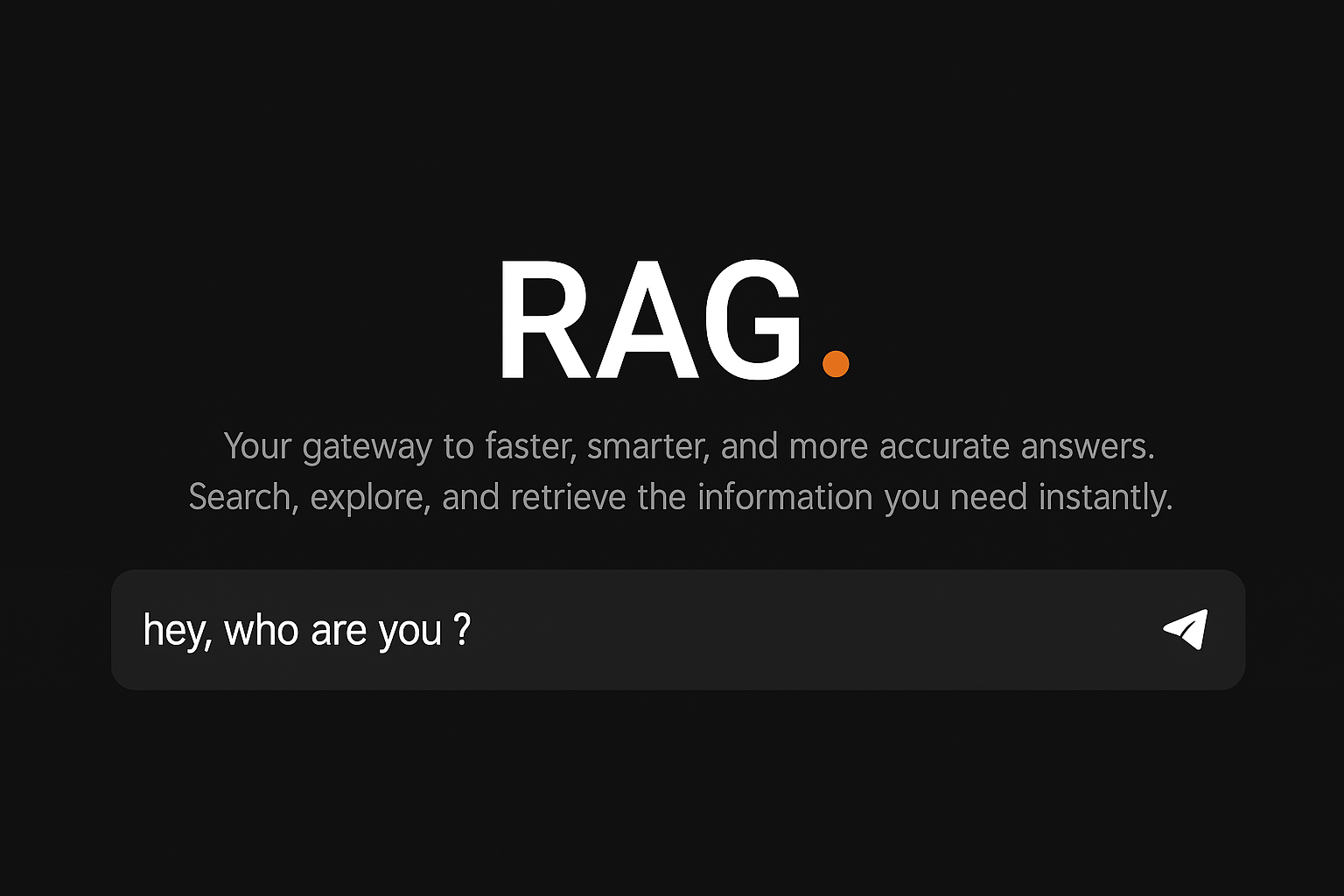Every company sits on a goldmine of knowledge: contracts, reports, manuals, research papers, policie… the list goes on. But for many, that goldmine feels more like a labyrinth. Anyone who has dug through dozens of PDFs for a single answer knows how slow and frustrating the process can be.
In the energy sector, the stakes are even higher. Knowledge isn’t just valuable, it’s critical. Drilling teams depend on vast amounts of technical documentation: well logs, safety manuals, geological surveys, regulatory guidelines, and engineering reports. When a crucial decision needs to be made on-site, every minute spent searching for information can mean delays, safety risks, or costly downtime.
This is where AI can make a real difference. Retrieval-Augmented Generation (RAG) brings together the reasoning power of large language models with the precision of advanced search. But here’s the reality: RAG is only as strong as its retrieval engine. If the system can’t surface the right insight from a 300-page drilling report, even the smartest AI model will fall short.
That’s why our team set out to build something different: a retrieval system designed for the energy industry. One that doesn’t just scan documents, but truly understands technical context, and delivers the right information to the right people, exactly when they need it most.
The Heart of the Challenge
In oil and gas, knowledge is spread across a highly heterogeneous set of documents, from academic papers and technical standards to field reports, manuals, and regulatory filings. These are not simple text files. They are layout rich, filled with figures, tables, charts, and diagrams that often hold the most critical insights.
Traditional search tools struggle in this environment. They read plain text but miss meaning hidden in complex layouts, forcing engineers to scan hundreds of pages to find a single answer. In a domain where time matters, this inefficiency can lead to costly delays and risks.
Unlocking knowledge from such diverse and richly structured documents requires a new kind of retrieval system, one that can understand complexity rather than just skim it.
Discover our AI Lab
Our 100% Algerian AI Lab is where our teams design, test, and deploy cutting-edge AI solutions tailored to the real needs of businesses.
Our Retrieval Approach
The first step in solving the retrieval challenge was to make the documents truly machine readable. Many of them came as scanned PDFs or image-heavy files, filled with figures, tables, and diagrams. To capture every detail, we relied on advanced OCR technology that could parse text with precision while preserving the structure of layouts. This allowed the system to treat a geological chart, a tabular dataset, and a regulatory note as part of the same coherent knowledge source.

On top of this foundation, we built a retrieval strategy powered by state-of-the-art models that understand technical language and context. Instead of matching keywords, these models generate embeddings that represent meaning, enabling the system to connect a drilling engineer’s query to the most relevant content across academic papers, field reports, or manuals.
By combining accurate document parsing with context-aware retrieval, our system goes beyond scanning. It interprets complexity, preserves the richness of technical documents, and delivers precise insights exactly when they are needed.
Innovation in Action
To understand the impact of our system, it helps to look at how the pipeline operates. The diagram below illustrates the journey from a user query to a precise, context-rich answer.
It begins with the query. The system first decides whether it needs to consult the vector database at all. For many straightforward prompts, the language model alone can provide an answer efficiently. But when the request requires deep technical knowledge, the system automatically turns to the vector database, which stores embeddings of the entire document collection. This optimization ensures responses are both accurate and efficient.

When the vector database is used, the system retrieves the most relevant information, whether that is a paragraph in a drilling report, a table in an academic paper, or a figure in a regulatory document. At the same time, it integrates the user’s input and conversation history. These elements are combined into a full prompt, preserving context and making sure the model understands not only the question but also its background.
This full prompt is then passed to the language model, hosted through a scalable cloud API. By grounding its reasoning in retrieved knowledge, the model generates a clear and context-aware answer. Finally, the result is delivered back to the user, with references that point to the original documents.
The outcome is a system that saves time, reduces risk, and ensures no critical detail is overlooked. Instead of manually combing through complex, layout-rich files, teams gain fast and reliable access to the information they need most.
Closing and Vision
What we have built is more than a single solution. It is a foundation for the next generation of AI-driven knowledge systems in the energy industry. By combining precise document parsing, intelligent retrieval, and the reasoning power of language models, we have shown how complex information can be transformed into practical insights that teams can trust.
This project demonstrates the value of Retrieval-Augmented Generation in high-stakes environments. It also proves that domain-specific challenges (such as heterogeneous documents, layout-rich formats, and technical language) can be solved with the right approach.
Looking ahead, we see enormous potential to extend these capabilities into other areas of the energy sector and beyond. From predictive maintenance to regulatory compliance, from real-time operational support to cross-disciplinary research, RAG can become the backbone of smarter, faster, and safer decision-making.
We are ready to take on the next wave of AI projects, partnering with teams who want to turn their data into a strategic advantage. The future of knowledge access is not about searching harder. It is about building systems that truly understand.
Article written by Mohcen. C
Discover our AI Lab
Our 100% Algerian AI Lab is where our teams design, test, and deploy cutting-edge AI solutions tailored to the real needs of businesses.


